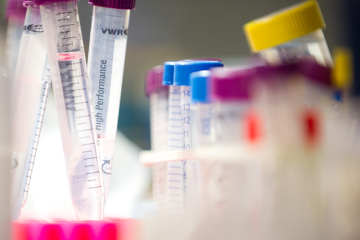Partnerships and impact awards
Goodbye gavage – Replacing oral gavage for mouse glucose tolerance testing

At a glance
In progress
Award date
March 2025 - February 2026
Grant amount
£139,767
Principal investigator
Professor Kate Ellacott
Co-investigator(s)
Institute
University of Exeter
R
- Refinement
